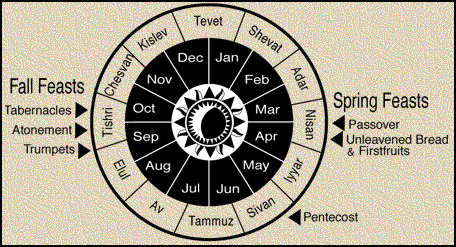The Call of the Shofar
All of this is to say, that when the ram’s horn is blown in synagogues, or throughout the streets of Israel (and maybe in your own church as well) it is supposed to bring to mind the Akedah, the binding of Isaac and all that happened there. If this is true in Judaism, then how much more so for us in the community of the redeemed, who see this picture’s grand fulfillment in Jesus the living sacrifice, sanctified, and spiritual?
The Call to Repentance
Given what we now know about the Akedah, we are ready to move into the next attribute of the shofar the call to repentance. When the shofar is blown, a person does not know if God Himself is about to make an appearance.
Then it came to pass on the third day, in the morning, that there were thunderings and lightnings, and a thick cloud on the mountain; and the sound of the trumpet [shofar in the Hebrew] was very loud, so that all the people who were in the camp trembled (Exodus 19:16).
To stand before the Almighty Creator is a fearful thing. Who among us could bear it? Even Isaiah, who by our standards was completely obedient and lawful, full of the Spirit of God, and a prophet among prophets, felt he was undone when He stood before Yaweh.[7] How much more so for us? Therefore, the shofar became the ultimate call to repentance. You may have scarcely a heartbeat to turn from sin before He would stand before you. Who wants to be caught before the Judge of all the earth in sin?

From The Holidays of God: Fall Feasts, Copyright 2000 by RBC Ministries, Grand Rapids, MI. Used by permission.
Hence, the Feast of Trumpets (also called Yom Teruah or Rosh Hashanah) in the biblical calendar begins with the shofar blasts, and the call to repentance. In fact, since Trumpets begins on the first day of Tishri, the month prior, Elul, is devoted to turning one’s heart and mind toward repentance. Prayers are offered asking God to call to mind any and all sins which have not been dealt with, all debts to neighbors, friends, family members which have not been put to rest. Promises and vows are critiqued and examined. “Did I live up to my promises?”
One of the other unique properties assigned to the shofar by the rabbis is that when it is blown, it sends Satan and his minions into total confusion. While I cannot attest to this as true, I like to imagine the hordes of evil swirling about in confounded rage with all of that “repenting” going on!
The Call to War
The shofar was commonly used as a battle horn, not unlike the bulls’ horns of medieval Europe, or the trumpet in America’s own Civil War.
“And seven priests shall bear seven trumpets of rams’ horns before the ark. But the seventh day you shall march around the city seven times, and the priests shall blow the trumpets (Joshua 6:4).” From this point on, the shofar became God’s battle call. With the shofar often tucked into your belt, you can see why the smaller, more traditional ram’s horn would prove more battle-ready than the longer, twisted Yemenite shofar.
As mentioned above, according to the rabbis, the shofar sends the demonic realm into confusion. Maybe yes, maybe no. But, when we as the body of Messiah come together to worship and to pray to enter into spiritual warfare I believe blowing the shofar is very appropriate. According to Nehemiah: “Wherever you hear the sound of the trumpet [shofar], rally to us there. Our God will fight for us (4:20).”
Category: Biblical Studies, Winter 2001


